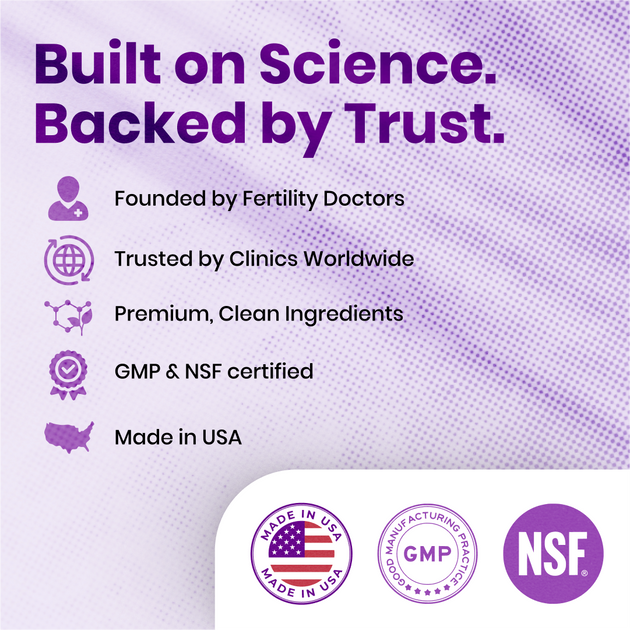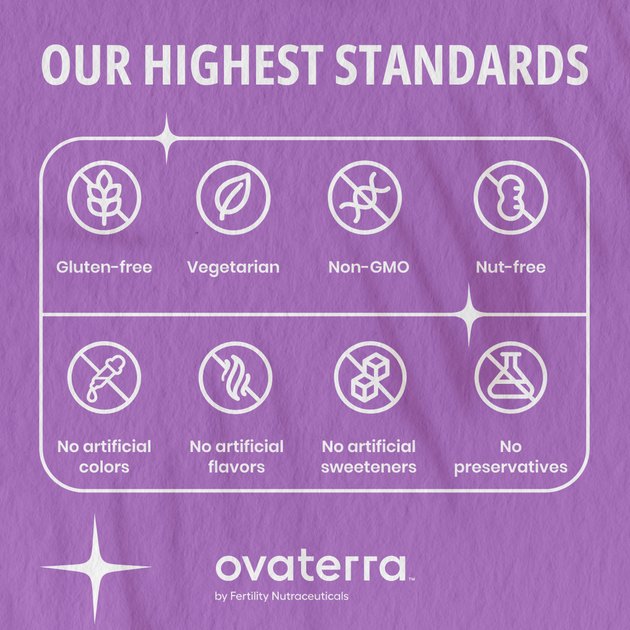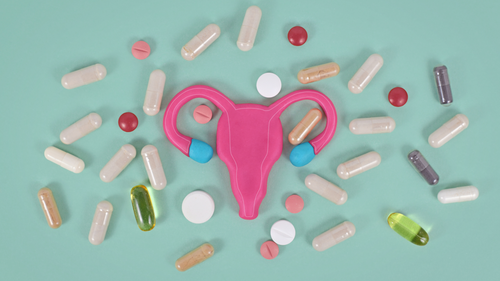





















Fertinatal® DHEA was developed in partnership with the Center for Human Reproduction (CHR), a globally recognized IVF center in New York City that led the early research into DHEA and female reproductive health*.
- A 4-week supply of Fertinatal® DHEA: 90 capsules packed in weekly blister cards.
Fertinatal® DHEA was developed in partnership with the Center for Human Reproduction (CHR), a globally recognized IVF center in New York City that led the early research into DHEA and female reproductive health*.
- A 4-week supply of Fertinatal® DHEA: 90 capsules packed in weekly blister cards.
How to take DHEA for fertility: Take 1 capsule 3 times daily with meals, or as instructed by your doctor.
Fertinatal® is not recommended for women who have a history of hormonal cancer or estrogen-sensitive conditions like endometriosis or PCOS. Check with your doctor before starting supplementation. Discontinue use after a positive pregnancy test. Read the insert for full indications and contraindications.



Ingredients with intention.
DHEA
Dehydroepiandrosterone
DHEA is converted into testosterone in the body and supports ovarian health for women 35 and above*. Fertinatal DHEA is plant-derived and micronized for absorption.

Quality Is In The Details




Recommended Fertility Clinics Globally
The basics of FERTINATAL® DHEA For Women
Fertinatal® DHEA supports female reproductive health through ovarian health*.
Reported side effects of DHEA supplementation include: oily skin, acne, hair loss, increased hirsutism (hair growth), deepening of the voice, increased libido and assertiveness, gastro-intestinal complaints and hypertension. Should supplementation with FERTINATAL® lead to unwanted side effects, discontinue supplementation and consult with a healthcare provider immediately.
Every batch of Fertinatal® DHEA undergoes a triple-step quality assurance process that includes testing at independent laboratories for micronization, potency and contamination.
DHEA in Fertinatal® is derived from wild yam. Made with just 5 clean ingredients, Fertinatal® is gluten-free, non-GMO and nut-free. Made with clean Fertinatal® contains no artificial colors, flavors, sweeteners or preservatives.
Manufactured in the United States at a NSF-certified facility under cGMP standards.


















